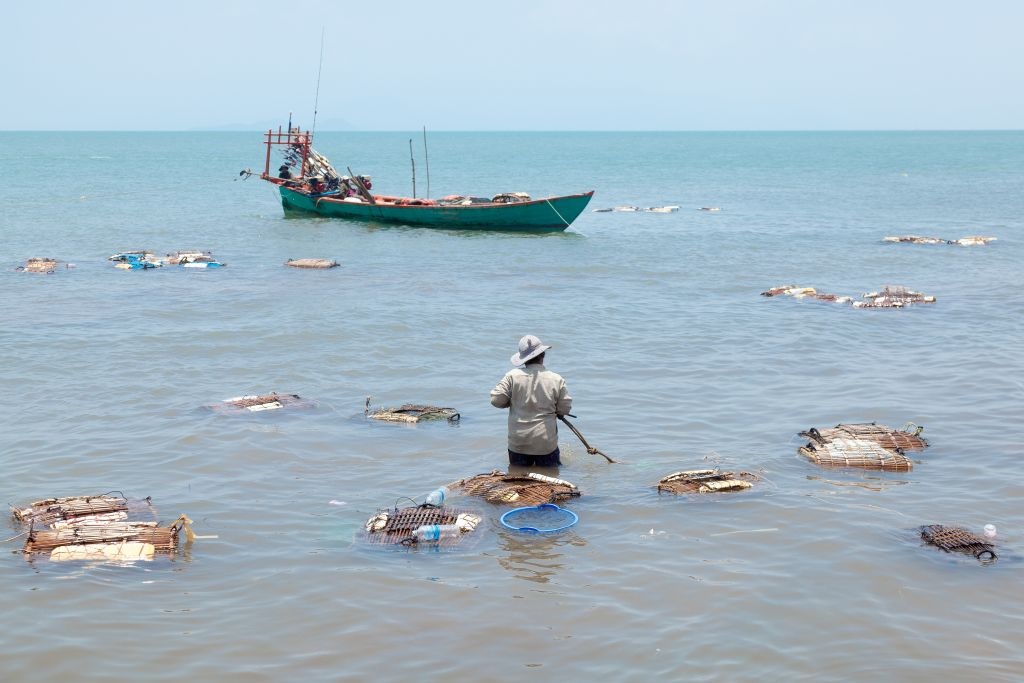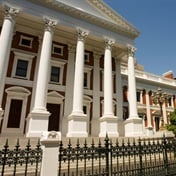
- Fishermen in Cambodia's provinces of Kep and Kampot are worried about small catches due to a warmer sea.
- Temperature spikes above normal have become increasingly common in oceans along Cambodia's coastline since 2010.
- The government introduced a crab-releasing campaign in 2010, and since July, participants have been rewarded with gifts.
- For climate change news and analysis, go to News24 Climate Future.
For Ung Bun, a 39-year-old fisherman from Cambodia's southern Kep province, the days when he would come home with plentiful catches of flower crabs appear to be long gone.
Pulling in his net one recent morning, he found just one crustacean. Ung Bun dropped the crab - a male that was too small - back into the sea.
"I feel despair that I cannot harvest even one crab after a day, when about five years ago, I would have caught about 10-20 kg of crabs. Yesterday morning I caught about four to five crabs," he said.
He later took three gravid crabs - females laden with eggs - out of a bucket and released them back into the sea.
Releasing them and the small male crab were acts Ung Bun wouldn't have done a few years ago, part of a conservation campaign he joined this year that seeks to ensure a more sustainable future for crab catching.
The provinces of Kep and Kampot are famous among locals and foreign visitors for their delicious flower crabs but fishermen there are anxious about their small catches - a development that experts attribute to a warmer sea.
According to data from the University of Maine's Climate Change Institute, temperature spikes above normal have become increasingly common in oceans along Cambodia's coastline since 2010.
Escalating emissions also result in higher levels of carbon dioxide being dissolved in the sea, lowering its pH level. The warmer and more acidic water reduces the concentration of carbonate, a compound necessary for shellfish to create their shells.
Overfishing as demand from customers increases also hasn't helped.
READ | SA told to boost beach safty as great white sharks move east
The Cambodia government's crab releasing campaign dates back to 2010 but this year it began working with Wild Earth Allies, a non-profit organisation. Since July, people in the fishing community who take part have been rewarded with gifts.
When Ung Bun and other participants catch gravid crabs they either release them back into waters where they are unlikely to be caught or bring them home to raise until they give birth.
They have also stopped using fishing nets with smaller holes so younger crabs are not caught up.
But Ung Bun's participation in the campaign results in even smaller catches and tension at home.
The day he caught just one crab only to let it go, he earned just 40 000 riels ($10) for fish he caught, money he used to pay for a litre of gasoline for his boat.
The second-generation fisherman also has two young daughters whose school fees amount to 1 million riels ($240) a month and owes $10 000 on the bank loan he took out to buy the boat.
"My living conditions are extremely difficult now because we can't catch as many crabs or fish. I can hardly afford to buy gasoline to go out to fish or pay for my children's school fees, and so I face problems with my family," Ung Bun said.
Even so, he believes in the crab release programme.
READ | Fishers vs penguins: Creecy to instate 10-year fishing ban in key areas
Ung Bun said he has released hundreds of female crabs as part of the campaign, as well as thousands of baby crabs from his "crab bank" - a home setup where crab larvae are allowed to hatch from their mothers before being returned to the sea.
Crab bank participants are paid 50 000 riels ($12) a month by the local fishery administration, an official said.
Participants are also encouraged to post pictures and videos on their social media accounts when releasing the crabs to win broader recognition and acceptance of the campaign.
"If the villagers see my work, many would not understand what I'm doing," Ung Bun said.
"However, if I continue to do this and the younger generation can see what I am doing then they can follow in my footsteps and that will help to preserve the crabs so we can harvest them in greater numbers again."




 Publications
Publications
 Partners
Partners












